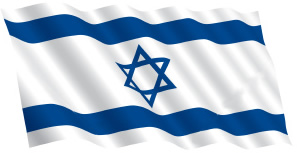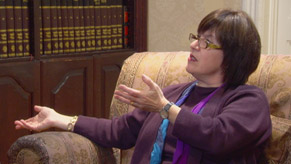Posts Tagged ‘American Jews’
Of Pain and Pride: Hard Lessons from Israel’s No-Medal Olympics
No Israeli came home with a medal in the 2012 Summer Olympics in London. Thirty-seven Israeli athletes competed in eight sports. Two athletes came in sixth place, but alas, no medals.
For Jews and Israelis around the world, however, this Summer Olympics was overshadowed by the campaign to convince the IOC to hold a moment of silence for the 11 Israeli athletes killed by Palestinian terrorists at the 1972 Munich games. The campaign consumed the media in advance of the games and even caught the attention of world leaders, including U.S. President Barack Obama.
In the end, while several separate services were held in their memory, the IOC chose not to hold a moment of silence during the main opening or closing ceremonies. They felt it was not an appropriate forum for a moment of silence. “Shame on you, IOC,” said Ankie Spitzer, who was married to fencing coach Andre Spitzer who was killed in Munich. “You have forsaken the 11 members of your Olympic family. You are against them only because they are Israelis and Jews.”
While it would have been nice for the IOC to hold that moment of silence—and it would have been very meaningful—I can’t help but listen to a little voice in the back of my mind. What if, instead of complaining, Israel had actually won a few medals this year? What if the world saw not a sore loser, but a brave winner? What if Israel could have proven to the world that it’s in the game and a key player on the world stage?
Imagine hearing Hatikva while the Star of David flag rose up before the podium. Imagine the great PR opportunities for Israel with its athletes in the spotlight. Imagine the voice Israel could have in the IOC if it competed at the highest levels of athleticism. Imagine Israel’s top athletes publicly displaying the Olympic spirit, like the incredible moment when Kirani James of Grenada exchanged bibs with double-amputee competitor Oscar Pistorius of South Africa. Imagine Israel’s gold medalist telling the press that her win was in honor of the Munich 11 (See Jewish American gymnast Aly Raisman’s tribute). Imagine then the incredible impression Israel could have given the world.
In my opinion, Israel should resolve today to support athletics like never before. If Israel really set its mind to it, it could have a good number of Summer Olympic medalists in the next four, eight or twelve years. Israel could generously fund athletes who train overseas and later bring back their expertise to train younger athletes in Israel. New athletic centers could be built and more kids and parents could be encouraged to participate. Whole communities could get involved and attend competitions. Israel could reach out to top coaches around the world and offer them jobs in Israel.
With stronger athletes, Israel could compete at the highest levels and make a name for itself. Not as a victim, not as a bitter widow, but as a triumphant nation born to greatness.
Imagine the pride then.
Identity and Irony: Oprah’s Review of Hasidic Jews
Oprah’s visit to Hasidic Brooklyn aired on Feb 12, 2012 from 9-10 pm and on Feb 13, 2012 from 10-11 pm on OWN, the Oprah Winfrey Network.
As an insider when it comes to Orthodox Judaism (though not the Hasidic brand), I eagerly anticipated Oprah’s two-part series. How would “we” be represented?
I had seen Oprah’s after-taping interview with Chabad.org (a MUST-WATCH) and saw how positively she felt about the spiritual teachings she gleaned from her visit. I was very excited for Oprah to have such a positive view of Judaism.
As it turns out, however, the narrator began by reminding us that the show was only about Hasidic Jews. I was not going to be represented. “Ok,” I thought as I settled down to watch, “if it’s embarrassing, at least she isn’t talking about me!”
But the irony was that she WAS talking about me.
I’m not Lubavitch, I’m not even Hasidic, but I knew everything Oprah learned. I felt everything she learned. I felt it as an insider, and I especially identified with the sheitel-wearing ladies in Part II.
Oprah was smart to invite the ladies to a candid chat. As she says at the end of the episode, she got exactly what she came for. She connected with the women, she understood them, and she felt a common bond.
As an insider, it was pretty powerful. I’ve always liked Oprah and admired her success, but now I understand why she’s so successful. She’s open, warm, inquisitive, and blunt (all at the same time) and this is what makes her so likeable. She did an amazing job in Part II, helping the women feel at ease, respecting them, asking good questions, and listening to them.
There was one middle-aged lady sitting to Oprah’s left, next to Shternie Ginsburg. I don’t know her name (I think she was Chaya), but in my mind, she represented the rebbitzens of the world. She was smart, articulate, she exuded leadership, and her tone was very spiritual. She was truly a beautiful person.
Oprah was a complete outsider, but she managed to tell a tale of friendly Jewish women who value community, raise their kids in a wholesome way, and love their husbands. She is a genius.
I know that the vast majority of Oprah’s viewers may never know that the people she met were Lubavitchers, and that Lubavitch is just one type of Hasidim. And they may never know that there are non-Hasidic types of Orthodox Jews.
But Oprah’s brief glimpse into these people’s lives showed religious Jewish women with values, personality, confidence and a lot of love. Whether a person is an insider or an outsider, the show was both meaningful and inspiring.
I have to admit that in the beginning of the first episode, I wondered why there was no reference to the 18th century or the Holocaust. And I didn’t understand why she focused so much on marriage, Taharat Hamishpacha, and TV. I felt like there was so much more of our identity that she was missing. I worried that she was ignoring the forest for the trees. But by the time I finished watching the second episode, I understood that through this tiny slice-of-life lens and the perspective of Lubavitch, she was able to weave a beautiful story in which we—all Jewish women—had a starring role.
 And so I thank Oprah for NOT focusing on the bigger picture. I thank her profusely for not mentioning the debate within Lubavitch about the Rebbe’s potential messianic status. I thank her for NOT mentioning the differences between Lubavitch, Belz, Bobov, Satmar, and Ger. And I thank her for NOT reminding us of painful periods in Jewish history.
And so I thank Oprah for NOT focusing on the bigger picture. I thank her profusely for not mentioning the debate within Lubavitch about the Rebbe’s potential messianic status. I thank her for NOT mentioning the differences between Lubavitch, Belz, Bobov, Satmar, and Ger. And I thank her for NOT reminding us of painful periods in Jewish history.
Instead, she met with families, chatted with women, and showed short vignettes of life around town. We saw a wedding, a kosher restaurant, a wig store, a Judaica store, and even the Mikvah. Through this lens, she captured a vibrant culture with positive goals and much to look forward to.
And all Jewish women can thank Oprah for that.
There’s more on Oprah’s visit to Hasidic Brooklyn, including exclusive “webisodes” on OWN’s Website.
It’s All about Culture: Our Orthodox Differences
A frum man and his four kids walk into a restaurant in Central New Jersey.
How do I know they’re not from around here?
First, the man walks into the store, ascertains with one quick glance that there are frum people in the store and immediately feels at ease, knowing that he is, in fact, in a kosher restaurant.
Next, he asks the lady behind the counter, “Do I have to pay the meter?” “No,” she says, “not after 6 pm.”
The family proceeds to make a lot of noise, discussing the merits of ordering this or that dish. It seems like the whole restaurant is in an uproar.
Upon finalizing their orders, the man asks the lady which way is East. He and his two teenage sons immediately begin davening mincha in the middle of the restaurant, with no concern that there are individuals seated or walking in front of them. No, they aren’t from around here.
Then they continue to stand around and wander in the restaurant while waiting for their orders, despite the fact that everyone else is sitting and relaxed, and there are plenty of seats. They are making us all nervous.
One of the daughters is around 12 and is wearing a “biz” skirt and button down shirt. Yeah. Not our town. The other daughter is about 8 and already feels the need to wear huge black sunglasses as a stylish headband. Yeah, that’s not our town either. The father and the two boys are dressed EXACTLY the same as each other – white shirts, black pants, and black velvet kippahs.
Within 5 minutes of their arrival, I know this family is not from around here. If you will allow me to guess, I would guess they’re from Flatbush.
It’s amazing how culture is so specific to location. We are all “frum,” but clearly very different. Anyone know why? Do we create our own culture? What other factors influence us? What aspects of culture do we all have in common?